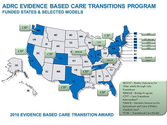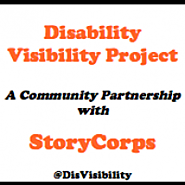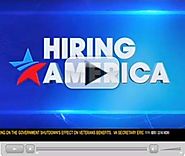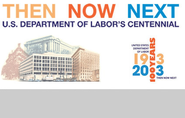-
About
- About Listly
- Community & Support
- Howto
- Chrome Extension
- Bookmarklet
- WordPress Plugin
- Listly Premium
- Privacy
- Terms
- DMCA Copyright
- © 2010-2025 Boomy Labs
 Gail Zahtz
Gail Zahtz
Listly by Gail Zahtz

Able Data is the premier database for unbiased, comprehensive information on products, solutions and resources to improve productivity and ease life’s tasks. They provide a wealth of information to assist domestic and international customers and their family members, vendors, distributors, organizations, professionals and caregivers in understanding assistive technology (AT) options and programs available. AbleData is funded by the National Institute on Disability, Independent Living, and Rehabilitation Research (NIDILRR). NIDILRR is part of the U.S. Department of Health and Human Services' Administration for Community Living. AbleData does not sell products and we do not endorse any non-government websites, companies or applications.
You can search by products, manufacturers, assistive technology, a news blog, a new product section, events on or for disabilities and more.

The ADA Home Page provides access to Americans with Disabilities Act (ADA) regulations for businesses and State and local governments, technical assistance materials, ADA Standards for Accessible Design, links to Federal agencies with ADA responsibilities and information, updates on new ADA requirements, streaming video, information about Department of Justice ADA settlement agreements, consent decrees, and enforcement activities and access to Freedom of Information Act (FOIA) ADA material
You may be able to find similar services in your area. This is for Arizona- Ensuring Care for Arizona What is ALTCS The Arizona Long Term Care System (ALTCS) is an Arizona Medicaid program that is designed to help fixed income seniors and other disabled individuals afford the care that they need. ALTCS pays for the care that you need after savings are exhausted.

Household Economic Studies of Current Population Reports from the U.S. Census. Good primary research for income of a certain class of people with disabilities.

Find a Local ADRC The Purpose of the Program and How it Works The No Wrong Door System comprised of Aging and Disability Resource Centers (ADRC), a collaborative effort of ACL (formerly Administration on Aging), the Centers for Medicare & Medicaid Services (CMS), and now the Veterans Health Administration (VHA), supports state efforts to streamline access to long-term services and support (LTSS) options for older adults and individuals with disabilities.

'Recording disability history, one story at a time.' Collecting oral stories (personal narratives) via Story Corps and the Story Corp App. Tweetchats, regional events, photo project and more.

A gateway to disability resources on the Internet, featuring thousands of web sites arranged by subject or state.
Hundreds of Disability Categories Including:

For millions of Americans with disabilities, gainful employment remains out of reach.
Enable America is a nonprofit organization dedicated to increasing employment among the 56 million Americans with disabilities.Our goal is to work with all members of the community – including disabled individuals, service providers, government agencies, advocacy groups, existing organizations and employers – to eliminate barriers to employment and bridge the gap between disabled job seekers and the employers who want to hire them.

The Accessibility Clearinghouse has information on the availability of Accessible products, services, and accessibility solutions. The FCC information hub about phones and innovative ways to communicate, especially for people who may have a disability.
The FCC is dedicated to ensuring that all Americans - including Americans with disabilities - have full access to our nation's communications revolution. The 21st Century Communications and Video Accessibility Act put into motion new requirements to ensure that everyone has access to communications as well as the ability to send and receive emergency information and services.
Browse Resources by Disability


Get the latest HME news, featured stories from HomeCare Magazine, and access to our database of the best HME providers. Great website with a lot of trends on aging in place, resources, video, etc.
Topics
Aging In Place
CMS/ Medicare
HME Products
Legislation
Operations
Providers
For nearly four decades HomeCare magazine has been the leading publication serving the HME/DME provider market and is closely affiliated with Medtrade (owned by Emerald Expositions, the same owners of KBIS and many other major trade show events), the industry’s premier tradeshow. Purchased by Cahaba Media Group in 2011, the magazine has been revamped to focus on helping business owners succeed in an increasingly challenging marketplace rather than simply reporting the news. Published monthly, HomeCare magazine is supported each week by the HomeCare Monday e-newsletter. In addition to a Facebook page and Twitter feeds, the magazine also hosts an active discussion group on LinkedIn at HomeCare Magazine. - See more at: http://www.homecaremag.com/about#sthash.OfzADK6h.dpuf
Independent Living Institute, Storforsplan 36, 10 tr 123 47 Farsta Sweden Tel. 08-506 22 179.
In August of 2000, a small group of cultural arts administrators - all of whom were responsible for accessibility at their respective cultural arts organization - gathered at the John F. Kennedy Center for the Performing Arts in Washington, D.C. to discuss institutional cultural arts and disability issues.
They have some great resources for arts and disability, building arts for the ADA and more. These include:
TipSheets
Information on a variety of topics for ADA/504 Coordinators, accessibility managers, or other cultural arts professionals interested in making their facilities and programming more accessible to people with disabilities.
Topics include:
The Color Red in Design
Captioning and CART
Large Print Programs
Radio Frequency, Induction Loop, and Infrared Assistive Listening Systems
Producing and Distributing Braille and Large Print Programs
Service Animals and the Revised ADA Regulations
Staff Training Resources
Universal Design Resources on the Web
Universal Principles of Online Accessible Ticketing
The Impact of the 2010 Regulations on Hold and Release Policies for Wheelchair Accessible Seating
2010 Revised Regulations of the Americans with Disabilities Act Titles II and III
Books and Brochures
Assistive Listening Devices for People with Hearing Loss – A Guide for Performing Arts Settings
Audio Description for People with Vision Loss – A Guide for Performing Arts Settings
Sensory Friendly Programming for People with Social & Cognitive Learning Disabilities
Design for Accessibility: A Cultural Administrator's Handbook

The ADA Home Page provides access to Americans with Disabilities Act (ADA) regulations for businesses and State and local governments, technical assistance materials, ADA Standards for Accessible Design, links to Federal agencies with ADA responsibilities and information, updates on new ADA requirements, streaming video, information about Department of Justice ADA settlement agreements, consent decrees, and enforcement activities and access to Freedom of Information Act (FOIA) ADA material


Question: How does the federal government define disability? Answer provided to the DOL

This is a site when you need to know the ADA laws for employees or your want to know as an employee. Subtopics include the Americans with Disabilities Act, Employee rights, Employers' responsibilities, Hiring people with disabilities, job accommodations, job search, laws and regulations, small business and self-employment, social security, statistics and workers' compensations.

For a great primer on disability discrimination in the workplace for employers and employees go tohttp://www.eeoc.gov/laws/types/disability.cfm
This is all about the ADA and how it impacts covered employers and employees. The law requires an employer to provide reasonable accommodation to an employee or job applicant with a disability unless doing so would cause "undue hardship." Undue hardship means that the accommodation would be too difficult or too expensive to provide, in light of the employer's size, financial resources, and the needs of the business.
A reasonable accommodation is any change in the work environment (or in the way things are usually done) to help a person with a disability apply for a job, perform the duties of a job, or enjoy the benefits and privileges of employment .Reasonable accommodation might include, for example, making the workplace accessible for wheelchair users or providing a reader or interpreter for someone who is blind or hearing impaired.
A person can show that he or she has a disability in one of three ways:
What is not included in this area, but may be somewhere within the site, is that there are numerous benefits in terms of taxes, payment of salary for a period of time, incentives for people who are contractors of the government and more to encourage businesses to hire people with disabilities.

Information, Guidance and Training on the Americans with Disabilities Act. Includes ADA portal.
